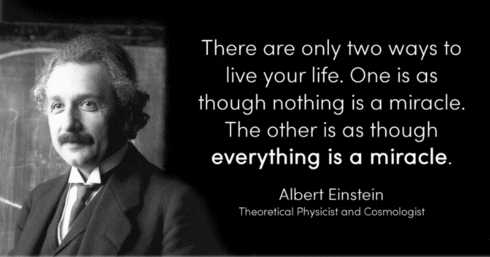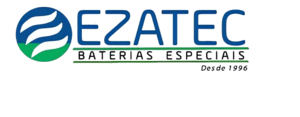No Blog Eletrônica de Potência você encontrará informações sobre teses,artigos,seminarios,congressos,tecnologias,cursos,sobre eletrônica potência. “TEMOS O DESTINO QUE MERECEMOS. O NOSSO DESTINO ESTA DE ACORDO COM OS NOSSOS MERITOS” ALBERT EINSTEIN. Imagination is more important than knowledge, for knowledge is limited while imagination embraces the entire world. EL FUTURO SE CONSTRUYE HOY,EL SUCESSO NO ES FRUTO DE LA CASUALIDAD,SE HUMILDE ,APRENDE SIEMPRE CADA DIA.
AUTOR DO BLOG ENG.ARMANDO CAVERO MIRANDA SÃO PAULO BRASIL

.gif)
“GRAÇAS A DEUS PELA VIDA,PELA MINHA FAMÍLIA,PELO TRABALHO.PELO PÃO DE CADA DIA,POR NOS PROTEGER DO MAL”
“SE SEUS PROJETOS FOREM PARA UM ANO,SEMEIE O GRÂO.SE FOREM PARA DEZ ANOS,PLANTE UMA ÁRVORE.SE FOREM PARA CEM ANOS,EDUQUE O POVO”


https://picasion.com/


quarta-feira, 11 de abril de 2012
RTA UNICA FABRICANTE DE AMERICA LATINA Filtro Ativo de Harmônicas SAO PAULO BRASIL

RTA REDE DE TECNOLOGIA AVANÇADA :http://www.rta.com.br
FILTERON
Filtro Ativo de Harmônicas
Capacidade: 25 até 800 amperes, paralelis de tensão 220/380/480/690 VCADisponível em média tensão até 13800Volts.
Configuração: 3 fases – 4 fios
Frequência: 50/60hz.
Customizações em diferentes montagens mecânicas e graus de proteção.
Interface Modbus e LCD (opcional). Compativel com a IEEE519
Funções
FILTERON é um conversor de potência em estado sólido, que proporciona as seguintes funções:
— Elimina a corrente harmônica em sistemas com carga não-linear.
— Compensação do fator de potência.
— Resistor virtual de amortecimento para prevenir a destruição por ressonância harmônica.
FILTERON é como um gerador de corrente reativa, especialmente quando são necessárias ao sistema. As harmônicas produzidas pelo FILTERON cancelam as harmônicas geradas pela carga não-linear, bem como a corrente injetada com o deslocamento capacitivo necessária a correção do fator de potência total, incluindo o fator de deslocamento.
Após o cancelamento das correntes harmônicas, seguem algumas vantagens óbvias:
(1) Prevenir a destruição por ressonância da corrente harmônica;
(2) Diminuição significativa da distorção da forma de onda da tensão;
(3) Diminuição da queda de tensão em transformadores e cabos;
(4) Redução da variação de temperatura em transformadores e cabos;
(5) Aumento do fator de potência, podendo chegar a unitário
(6)Aumento da vida útil das cargas
(7)Eficiência energética com redução das perdas por aquecimento
(8) Redução dos custos de manutenção.
segunda-feira, 9 de abril de 2012
Power Quality Enhancement of Three-Phase Front-End Rectifier of UPS System Using Current Injection Technique

Power Quality Enhancement of Three-Phase
Front-End Rectifier of UPS System Using
Current Injection Technique
Gunwant A. Dhomane and Hiralal M. Suryawanshi
Visvesvaraya National Institute of Technology, Nagpur, India
Summary: Power Quality, in terms of power factor and harmonics, is greatly hampered by a threephase
rectifier used as a front-end ac-to-dc converter in many systems including a UPS. This paper
presents the high power factor operation of the converter with reduced total harmonic distortion up
to 4%. The power quality up gradation is due to high-frequency current injection, at the input of the
front-end rectifier. A small filter is required at the output for filtering the high-frequency content.
Sinusoidal PWM technique is used for controlling the output voltage. DSP is used for generating
the desired gate pulses. The converter has high efficiency, low EMI emissions, high power packing
density and suitable for UPS system. A Simulation and experimentation is carried out on a 3 kW
converter and experimental results are in good agreement with simulation results.
FULL PAPER HERE:http://www.epqu.agh.edu.pl/archives/journal/v14i2/v14i2_04.pdf
A Modified Harmonics Reduction Technique for a Three-Phase Controlled Converter

A Modified Harmonics Reduction Technique
for a Three-Phase Controlled Converter
Ali M. Eltamaly
Abstract—Three-phase controlled converters have many applications
especially in adjustable speed drives and renewable energy.
A three-phase controlled converter is a good option in these applications
due to its low cost, simplicity, and maintainability with
respect to other solutions like a full-bridge insulated gate bipolar
transistor converter or a Vienna rectifier. Line current harmonics
in this converter is very high; therefore, a harmonics reduction
technique is needed to remedy the problem. In this paper, an
improved injection current technique is introduced to reduce line
current harmonics. The optimal amplitude and phase angle of
the injection current for different loads and firing angles have
been mathematically determined. Simulation for this technique
has been performed by using the PSIM simulation program. An
experimental prototype has been built to verify the mathematical
and simulation results. The simulation and experimental results
show a sensitive variation in the total harmonic distortion of
the line current for the amplitude and angle of injection current
variations. The simulation and experimental results prove the
superiority of this technique in mitigating the requirements for
harmonics standards.
FULLPAPER HERE:http://repository.ksu.edu.sa/jspui/bitstream/123456789/6648/1/Modified%20Harmonics%20Reduction%20Technique%20for%20a%20Three-Phase%20Controlled%20Converter.pdf
LINK2:http://www.mediafire.com/?96w252ckdl10953
Assinar:
Comentários (Atom)